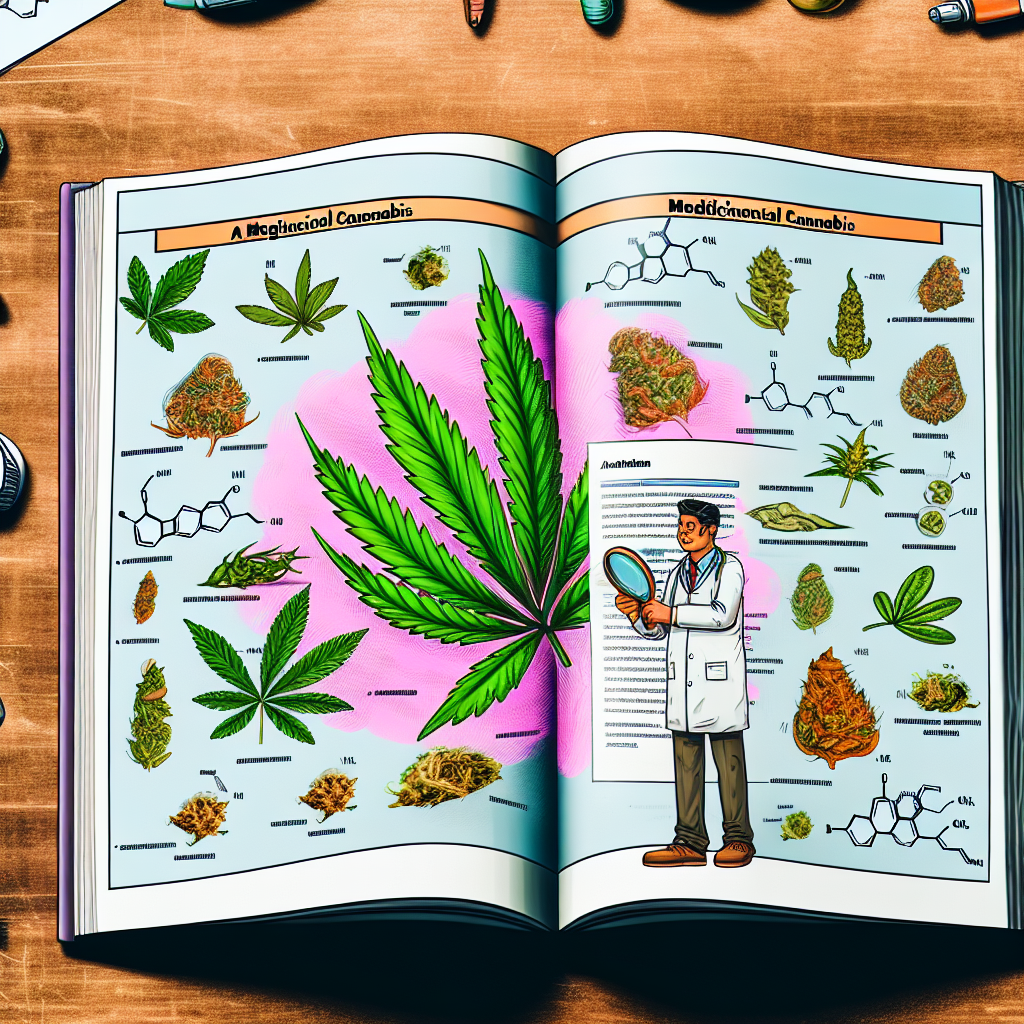What really is CBD?
In the realm of wellness and health, CBD has emerged as a promising option for those seeking natural and effective alternatives to address a variety of conditions. But what exactly is CBD and how can it impact one’s quality of life? Let’s delve into the fundamentals of this compound and discover how it can be a valuable ally for individuals seeking a path to lasting pain relief and well-being.

CBD, or cannabidiol, is one of the many compounds found in the cannabis plant. Unlike THC, another component of cannabis, cannabidiol does not induce the “high” often associated with marijuana. Instead, this compound is promising for its therapeutic benefits and potential to alleviate a variety of symptoms and conditions.
Cannabidiol interacts with the body’s endocannabinoid system, a complex system of receptors and neurotransmitters that plays a crucial role in regulating essential biological functions such as sleep, appetite, pain, and immune response. By doing so, the compound in question can help restore the body’s internal balance and promote a state of well-being.
For individuals dealing with chronic pain and exploring alternatives to conventional treatments that sometimes fail to produce the desired results and come with various unwanted side effects, cannabidiol emerges as a promising option. Understanding how the cannabinoid works and its distinctions from other cannabis compounds allows for decisions based on scientific evidence regarding its inclusion in a healthcare plan.
Safety Zone Cbd is committed to providing truthful information based on scientific evidence. We work with trusted partners to bring our readers products with safety, efficacy, and excellent service. We’ve provided a link below to one of our partners who offers high-quality CBD and other plant derivatives in a variety of presentations for all types of cases. Click now to take advantage of today’s offers!

In summary, Cannabidiol represents an exciting opportunity for those seeking a natural and effective approach to well-being. By understanding what this substance is and how it interacts with the body, we can open the doors to a new chapter in the quest for health and relief from various symptoms. By exploring the possibilities offered by this natural substance, we are paving the way for a new era of healthcare grounded in nature and science.
So, Will CBD Get Me High?
One of the most common and understandable questions about cannabidiol is whether it has the same psychoactive effects associated with marijuana. It’s crucial to make it clear that the psychoactive effects of this substance are not the same as those of THC, another substance found in the marijuana plant. People need to make informed decisions about the use of cannabidiol in their wellness journeys, so let’s delve into this issue in detail and provide the necessary understanding of the effects of cannabidiol on the human body.
We need to understand that THC, the compound in cannabis known for producing the effects commonly referred to as “getting high,” is the most prevalent in the plant and binds to a receptor in the endocannabinoid system. Unlike CBD, which binds to another receptor and therefore does not have this effect on the human body. This means that consuming cannabidiol does not result in feeling “high.” Instead, the substance interacts with receptors in the endocannabinoid system, which are involved in regulating various physiological functions, without affecting mental processes.
It’s important to emphasize that cannabidiol is a safe option, but research on the long-term use of the substance is still ongoing. Recent studies indicate that excessive THC use in an adolescent and developing brain may present significant alterations and even be a strong trigger for triggering schizophrenia in predisposed individuals. But even this information still needs further investigation to truly understand the relationship between THC and schizophrenia.

That said, when we turn to CBD, scientific studies and research point to a real and potential substance for those seeking symptom relief without compromising cognitive function. This makes it an attractive choice for people who want to experience the therapeutic benefits of cannabis without the unwanted effects produced by high concentrations of THC.
Ultimately, when choosing Cannabidiol as part of your wellness approach, you’re opting for a natural solution that brings relief without interfering with your mind. Understanding the substance’s role in your body and how it differs from THC is necessary to fully enjoy all its benefits. But always remember, health decisions should be made with advice from a qualified professional. Before diving into any new health routine, consult your doctor to ensure it’s your best option. With Cannabidiol, you embark on a new journey towards well-being, soaking in all the goodness it has to offer and observing its effects on your body.
How you use CBD is your choice, and it should align with your style and health needs. Dive in, try new things, and talk to a healthcare professional to discover your best course of action. As you explore the various ways to use Cannabidiol, find what aligns with your wellness goals and lifestyle.

What Are the Different Ways to Use CBD?
As the popularity of CBD continues to grow, so does the variety of ways in which this beneficial substance can be consumed. The choice of how to use Cannabidiol may depend on various factors, including personal preferences and the specific needs of each individual. Let’s explore the different options available and the benefits associated with each of them.
- Oils and Extracts: This is one of the most common ways to consume Cannabidiol. CBD oils and extracts can be ingested directly, added to food or beverages, or even applied under the tongue for faster absorption. This form offers flexibility and precision in dosage.
- Capsules and Tablets: CBD capsules provide a convenient and discreet way to incorporate Cannabidiol into daily routines. They offer pre-defined dosages, which can be especially useful for those seeking a consistent dosing regimen.
- Edibles and CBD-Infused Beverages: From gummies to chocolates and beverages, CBD-infused edibles and drinks are becoming increasingly popular. These options provide a delicious way to enjoy the benefits of Cannabidiol.
- Topical Creams and Lotions: For those seeking localized relief, CBD-based topical products can be an effective choice. They are applied directly to the skin and can be helpful for relieving muscle and joint pains.
- Vaping or Inhalation: This form of use involves inhaling CBD vapor using a vaporizer. It’s an option that offers rapid absorption and may be suitable for those seeking immediate relief.
The choice of how to use CBD is a personal decision and should be based on your individual preferences and health needs. It’s important to experiment and consult a healthcare professional to determine the best approach for you. By exploring the different ways to use Cannabidiol, you can find the option that aligns perfectly with your wellness goals and lifestyle.

What Are the Key Benefits of CBD for Humans?
CBD, or cannabidiol, has gained prominence among the medical community and consumers for being a natural substance with a wide range of benefits for human health. As research and understanding of CBD continue to grow, it becomes clear that this powerful molecule offers a host of advantages for people’s quality of life. Let’s explore some of the key benefits of Cannabidiol and how it can be a valuable ally in the pursuit of wellness.
- Pain Relief: CBD is widely recognized for its analgesic properties. It interacts with the receptors of the endocannabinoid system, helping to reduce the perception of pain and alleviate physical discomfort.
- Reducing Anxiety and Stress: Many individuals turn to Cannabidiol to help manage anxiety and stress. The substance has shown promising effects in regulating cortisol levels, a hormone associated with stress.
- Improving Sleep: For those struggling with sleep, CBD can be a natural solution. It can help regulate sleep patterns, promoting more restful and peaceful nights.
- Anti-Inflammatory Properties: CBD exhibits anti-inflammatory properties, making it an interesting option for individuals dealing with chronic inflammatory conditions such as arthritis.
- Supporting Mental Health: In addition to aiding in anxiety management, CBD has been studied for its potential in treating conditions like depression and mood disorders.
- Neuroprotective Benefits: Studies indicate that CBD may have neuroprotective effects, meaning it could be beneficial for brain health and the prevention of neurodegenerative diseases.
As research on CBD advances, new benefits and applications continue to be discovered. However, it’s important to highlight that the use of Cannabidiol should always be supervised by a healthcare professional, especially if it’s being considered as part of a treatment plan for specific conditions. By exploring the benefits of Cannabidiol, individuals can find a natural and effective approach to promoting their health and wellness.

Is CBD Safety an Important Consideration?
With the growing popularity of CBD as a natural treatment option, questions about its safety naturally arise. Understanding the safety aspects of CBD is crucial for consumers to make informed choices about its use. We will explore the safety of CBD based on research and available data, including recent information about potential liver effects.
- Low Potential for Side Effects: Studies indicate that Cannabidiol has an impressive safety profile, with a low potential for side effects. However, it has recently been discovered that in some cases, CBD may be associated with hepatic issues. While the extent and causes of these effects are not yet fully understood, it is essential to take this information into consideration when evaluating the use of Cannabidiol.
- Need for Medical Supervision: Given the recent discovery about potential liver effects, it is more important than ever to highlight the significance of medical supervision when incorporating Cannabidiol into your treatment routine. A qualified healthcare professional can provide specific guidance, monitor your progress, and adjust the dosage as needed to ensure your CBD safety and effectiveness.
- Non-Addictive: Cannabidiol is not an addictive substance. There is no evidence to suggest that regular use of CBD leads to physical or psychological dependence.
- Medication Interactions: While Cannabidiol is generally considered safe, there may be interactions with certain medications. It is important to consult a healthcare professional when adding CBD to your routine, especially if you are taking prescribed medications.
- Source and Product Quality: The safety of CBD is also related to the source and quality of the product. It is crucial to choose Cannabidiol products from reputable sources that undergo third-party testing to ensure their purity and potency.
- Appropriate Dosage: Ensuring the correct dosage of CBD is essential for its safety and effectiveness. It is advisable to start with low doses and adjust as necessary, under the guidance of a healthcare professional.

Final Conclusions on the Use of CBD.
Throughout the preceding articles, we delved deep into the world of CBD, exploring its benefits, safety, and potential uses for both humans. Now, it’s time to synthesize the findings and provide comprehensive final conclusions on Cannabidiol.
- Abundant Benefits: CBD has demonstrated a wide range of health benefits for humans, from pain relief to anxiety reduction and improvements in sleep. Its ability to interact with the endocannabinoid system shows promising potential for a variety of conditions.
- Safety and Professional Guidance: While Cannabidiol is generally considered safe, it is crucial to consult a healthcare professional when starting any CBD regimen, especially if there are concerns about interactions with other medications.
- Continued Exploration: Research on CBD is continuously evolving. New discoveries may emerge, expanding our understanding of its applications and benefits.
CBD offers a promising path to improving health and well-being for both humans. However, it is crucial to approach its use with care and under the guidance of qualified healthcare professionals. The safety and effectiveness of Cannabidiol continue to be studied, and professional supervision is key to ensuring the comfort and well-being of all involved.
Have more questions? Explore our dedicated CBD section for more in-depth information and comprehensive resources on the subject.


